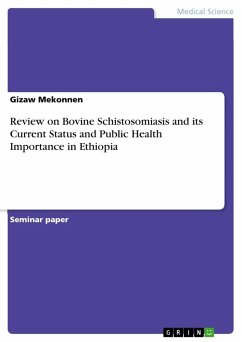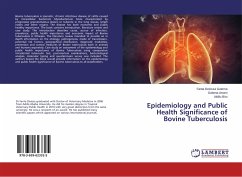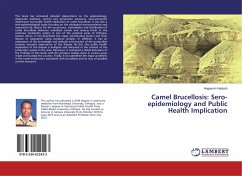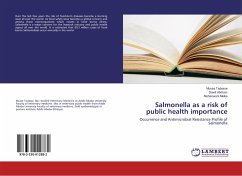Seminar paper from the year 2020 in the subject Veterinary medicine, grade: 18, , course: public health, language: English, abstract: Schistosomiasis is a parasitic disease transmitted by snail intermediate hosts. It is one of the most wide spread zoonotic disease which is endemic in many developing countries of the tropics and sub tropics causing considerable loss in humans and animals. The disease affects rural communities particularly those who depend upon irrigation to support their agriculture. Currently it affects between 200 and 300 million people in around 74 countries. The great majority (80-85%) of schistosomiasis is found in sub-Saharan Africa. Schistosomiasis is caused by trematode worms of the genus Schistsoma that live in the alimentary tract, bladder, as well as hepatic and nasal veins of humans and animals. Effective transmission of schistosomiasis occurs when the schistosome parasites, the aquatic snail hosts and the human or animal definitive hosts meet in space and time in surface water. The pathological changes with the disease are attributed by the adult parasite, cercaria and the eggs of the parasite. Health education, chemotherapy, environmental and biological control as well as provision of clean water have an innumerable role in the control activity of the disease. The use of traditional medicines in the treatment of schistosomiasis are economically important and a growing concern. There are various types of plants having anti schistosomal and molluscicidal properties with minimal side effects used by developing countries and continuous to be used in the modern world. Phytoplacca dodecandora (Endod) is the most widely studied molluscicide in Ethiopia.
Bitte wählen Sie Ihr Anliegen aus.
Rechnungen
Retourenschein anfordern
Bestellstatus
Storno








